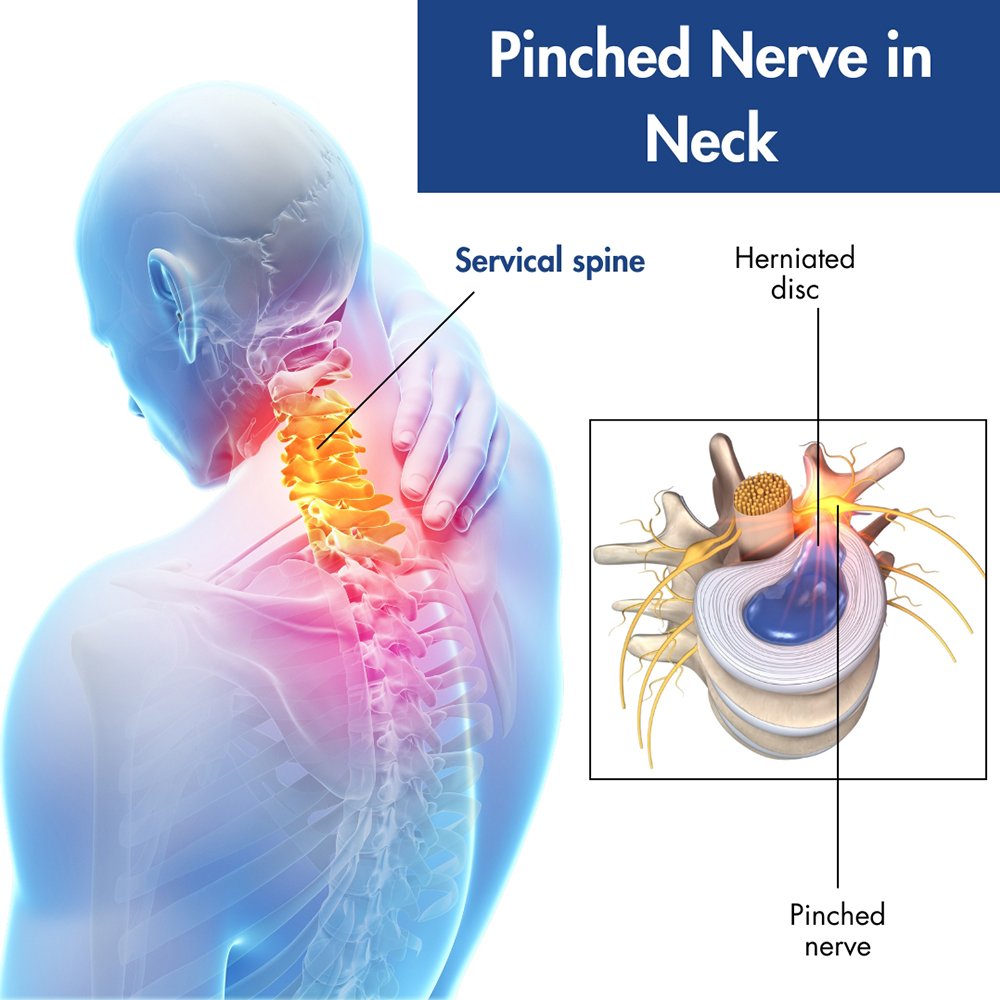We’re pleased to announce that Pain Physicians of Wisconsin is now Pro Spine Pain.
We’re pleased to announce that Pain Physicians of Wisconsin is now Pro Spine Pain.
 Experiencing a sharp, pinching sensation in your neck after delivering a powerful overhand in tennis or engaging in activities like painting or lifting? This discomfort could be indicative of a pinched nerve, requiring proper diagnosis and treatment for relief. The pain management experts at Pro Spine & Pain are ready to address your pain associated with a pinched nerve in the neck. Schedule an appointment today.
Experiencing a sharp, pinching sensation in your neck after delivering a powerful overhand in tennis or engaging in activities like painting or lifting? This discomfort could be indicative of a pinched nerve, requiring proper diagnosis and treatment for relief. The pain management experts at Pro Spine & Pain are ready to address your pain associated with a pinched nerve in the neck. Schedule an appointment today.
A pinched nerve in the neck may stem from overextension during activities such as golf or jobs involving lifting above shoulder level. This condition, clinically known as cervical radiculopathy, arises when nerves branching from the spinal cord in the neck are compressed or irritated. Various sports and occupational situations can contribute to its development.
Additionally, wear and tear injuries that naturally occur in the spine with aging contribute to the onset of this radiating pain. Unlike sudden sports or work injuries, a pinched nerve from wear and tear tends to manifest gradually, presenting as persistent, nagging pain. Our pain management specialists often diagnose arthritis as a potential cause for this type of condition.
Injuries sustained during sports or work activities can often lead to a herniated disc. The intervertebral discs serve as shock absorbers, providing cushioning to your spine during movements like walking or running. These discs consist of a robust outer ring safeguarding a softer gel-like center. In the event of compression from an injury or gradual height loss due to aging-induced stiffening of the outer shell, the gel may leak or bulge against the outer lining.
As the disc undergoes stiffening or compression, the vertebrae move closer together, causing friction against each other and the adjacent nerves. In an attempt to compensate for the lost disc material, the body initiates increased bone production. However, this response leads to the formation of bone spurs, rendering the spine less flexible overall and simultaneously pinching the surrounding nerves.
A condition called spinal stenosis can also cause this problem, as the space inside the vertebrae is too small to accommodate the spinal cord properly.
Pain from a pinched nerve in the neck typically initiates in the neck but then frequently extends down into the arm.
Some additional symptoms are:
Numerous occupational and sports activities can contribute to or exacerbate the strain on nerves, with certain individuals being particularly vulnerable.
The following activities commonly trigger pressure on the nerve:
Neglecting the symptoms and discomfort associated with a pinched nerve can result in long-term or permanent nerve damage. A neck injury might lead to permanent loss of sensation, muscle weakness, or a chronic pain condition. It can also result in restricted mobility in the neck or arms. Safeguard against permanent disability by seeking prompt treatment for a pinched nerve from a respected and knowledgeable expert at Pro Spine & Pain.
The majority of individuals seeking pinched nerve in neck treatment will experience improvement over time through proper self-care and adherence to recommended lifting techniques provided by their doctor. Should the problem recur, or if significant improvement is not achieved, specified movement and home treatments can be beneficial. However, if pain persists for weeks or months, even with diligent home care, your doctor may suggest more proactive pinched nerve treatment for your neck.
Some home treatment options include the following:
Prescribed interventions by your doctor may include:
If your symptoms persist even after undergoing conservative treatments, your pain management specialist at Pro Spine & Pain may recommend further tests and treatment. Common investigations include electromyography (EMG), MRI scan, or CT scan to determine the root cause. In chronic or severe cases, surgical interventions may be recommended. These procedures could involve the removal of the compromised disc or bone spurs. Another procedure is fusing the compromised vertebrae to enhance stability and achieve proper alignment. Fusion restricts the movement of a degenerated section of your spine. To support this, your doctor might insert a spacer or cage in place of the removed disc and graft bone to the area for added reinforcement.
The primary objective of these treatments is to alleviate pressure on the affected nerve, whether by building muscle, eliminating spurs, or replacing damaged discs. Our doctors are dedicated to identifying the most effective methods to provide relief from your neck pain. Schedule a comprehensive evaluation at the Pro Spine & Pain pain management clinic today .

Thomas Stauss, MD, completed both his undergraduate and medical studies at the esteemed University of Wisconsin in Madison. Dr. Stauss values having access to a wide array of cutting-edge treatment options, ensuring effective relief for his patients' discomfort and a significant enhancement in their quality of life. More specifically, he specializes in utilizing implanted devices to manage chronic pain. Dr. Stauss’s primary objective is to uphold the dignity of each patient while delivering ethical and professional services.
More about Dr. Stauss